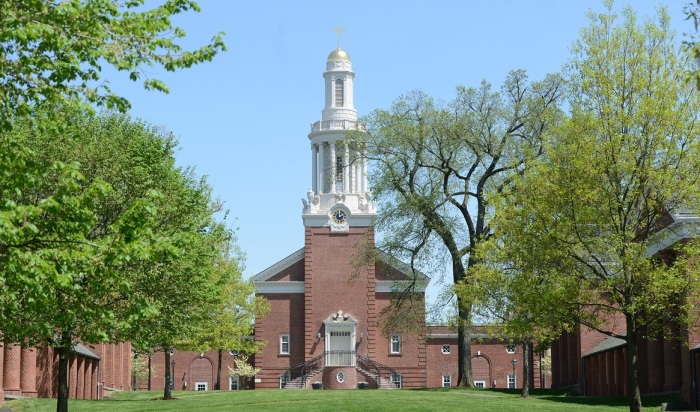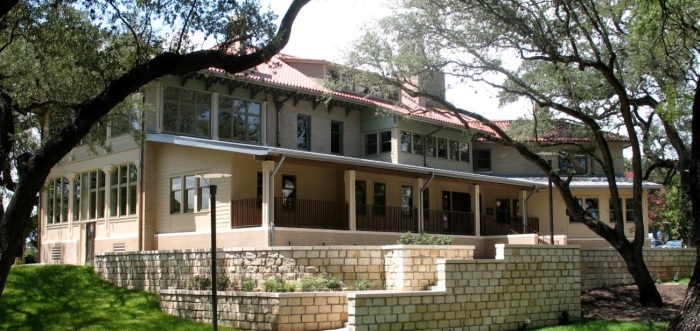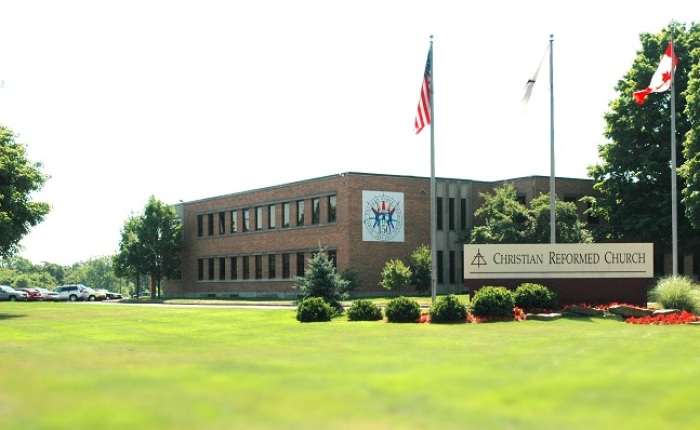92 Christian orgs granted $93M to reimagine church, adapt to 21st century

In an effort to help various Christian ministries adapt to the changing culture, including technology issues and membership decline, the Indiana-based Lilly Endowment has given $93 million in grants to 92 Christian organizations.
The Endowment announced the grants through its Thriving Congregations Initiative in late September, with beneficiaries including seminaries, congregations, and regional church bodies from diverse theological backgrounds.
Specific recipients include Austin Presbyterian Theological Seminary, Dakota Annual Conference of the United Methodist Church, the Evangelical Lutheran Church in America, Fuller Theological Seminary, the Greek Orthodox Metropolis of Boston, and the West Angeles Church of God in Christ, among others.
Judith Cebula, communications director for the Lilly Endowment, explained to The Christian Post that the grants came as a way to help ministries handle “the rapidly changing contexts in which congregations exist.”
“The Endowment launched the initiative to encourage organizations that care about the wellbeing of congregations to find ways to help congregations strengthen their ministries so people can deepen their relationships with God, enhance their connections with each other and contribute to the flourishing of their communities and the world,” said Cebula.
Cebula also told CP that the grants were “a competitive initiative,” meaning that “eligible organizations responded to Lilly Endowment’s request for proposals.”
“After careful review, Lilly Endowment chose to make grants to 92 organizations that presented the most promising ideas to address the aims of the Thriving Congregations Initiative,” she continued.
In recent years, much has been made about the rise of religiously unaffiliated Americans and the decline of membership and attendance for most church bodies.
Cebula noted that "technology, decrease in traditional worship attendance and participation in other ministries" are part of a "variety of challenges" for churches and ministries.
"It is the role of the organizations to help the congregations name the challenges and respond to the challenges, which could also include religious disaffiliation, challenges created by the pandemic, and specific concerns of their particular communities, cities, and neighborhoods," she added.
"Responses could include things such as developing their worship services, attending to social issues, building intergenerational relationships, serving people most in need, and many other possibilities."
This is not the first time that Lilly has aided churches and ministries. In 2005, for example, the Endowment gave grants of up to $45,000 to 124 pastors to help with sabbaticals.
The Christian Post reached out to a few of the recipients of the grants in November to see about their goals, the current status of their efforts, and what they viewed as a “reimagined” church.
Yale Divinity School

Last month, Yale Divinity School of New Haven, Connecticut, announced that it had received $1 million from the Endowment, which they would use for a program titled “Reimagining Church: New Models for the 21st Century.”
The goal of the program was to help churches discover “dynamic new approaches to congregational life and community engagement,” according to a press release.
Tom Krattenmaker, director of communications at Yale Divinity School, explained to CP that the program will involve working with 40 churches in Connecticut over the span of five years.
This effort will include helping to “support them in their efforts to engage in self-study, examine their local social and cultural contexts, learn about creative new options, and explore what models will work best for them in the post-pandemic world.”
Krattenmaker explained that the grant period will go from January of next year until December 2025, with the 40 congregations for the program still to be selected.
When asked by CP what he believed a “reimagined church” would look like, Krattenmaker responded that it is not ours to say.”
“Our role will be to support congregations as they think about what vision and mission are best for them going forward,” he said.
Seminary of the Southwest

Seminary of the Southwest, a seminary of The Episcopal Church based in Austin, Texas, received $1 million to fund a program known as the Thriving Bi-Vocational Congregations: Envisioning New Life in a Changing World (TBVC).
The program will establish three-year learning communities for Episcopal congregations that are bi-vocational, or headed by someone who serves in a part-time capacity.
The Rev. Nandra Perry, Ph.D., project director for TBVC, explained to CP that the congregations involved “will become labs for experimentation with both traditional and new practices of discipleship.”
“Major goals include helping churches discover how God is already at work in their contexts and calling them to innovative acts of discipleship in partnership with their wider local communities,” Perry said.
“To achieve this second goal, we will collaborate with Episcopal Relief & Development and The Episcopal Church to pilot an online version of their Called to Transformation curriculum. This curriculum offers grant participants theologically grounded training in the principles of asset-based community development.”
At present, the first cohort of peer learning communities is scheduled for launch next summer, while bi-vocational congregations are still being sought out.
Originally, according to Perry, the summer 2021 cohort was going to have a three-day in-person meeting of church and diocesan representatives. However, because of pandemic concerns, the plan was changed to weekly videoconference meetings.
According to Perry, a little over a third of Episcopal Church congregations are served by clergy who are supply, bi-vocational, or part-time and it is expected to increase.
"Our grant is focused on helping congregations face the future adaptively by embracing a shared model of ministry, built on a shared vocation, shared habits of discipleship, and shared responsibility for engaging the community outside their walls," she explained.
"By mentoring churches in this 'bi-vocational' vision of congregational life, we aim not only to help individual churches survive, but also to grow in their capacity to proclaim the Gospel and form mature disciples."
Perry believes a “reimagined” bi-vocational church involves congregants learning “to embrace and embody ministry as the work of the entire congregation, not just the work of religious specialists.”
“It is a church where congregants discover pathways to new life and energy together through the tools of biblical study, theological reflection, traditional spiritual practices, and active community listening and engagement,” added Perry.
“Through these practices, reimagined churches will recognize how sharing the call to ministry and discipleship can provide deeper meaning in congregants’ lives of faith; build relationships with people in their wider community; and help churches reach a new level of spiritual maturity.”
Reimagined bi-vocational churches, noted Perry, “will experience new vitality without needing full-time, professional clergy.”
The Christian Reformed Church in North America

In an announcement made Monday, the Christian Reformed Church in North America explained that it received a $1 million grant to establish a new lay leadership development course.
Titled Thrive, the course will be divided into two parts, Thriving Essentials and Thriving Practices, which will be aimed at helping congregations with their local outreach efforts.
“Thriving Essentials will be a six-part course covering topics such as community and ministry context, Reformed essentials, faith practices, characteristics of thriving congregations, and church leadership,” the denomination explained.
“Each of the sessions will be available in a variety of formats including online webinars, video recordings, in-person workshops, and downloadable materials that churches can use to host their own training event.”
CRCNA Ministry Support Services Co-Director Tim Postuma explained to CP that the course will begin next year, its programming influenced by the COVID-19 pandemic.
“We wrote the proposal during the pandemic, so it was certainly on our minds,” said Postuma.
“We've planned for both in-person and online delivery, and will be able to flex that as needed. But with the five-year timeframe, we certainly hope and trust that there will be plenty of in-person interaction throughout the project.”





























